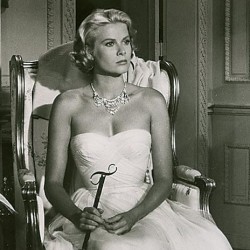Garbage Man
Steve Marker ’89 has made a lifelong career producing and performing alternative rock music.

Marker doesn’t think Garbage would have been as “creative or cool or interesting” without the UW’s influence. Levi Tecofsky
Steve Marker ’89 learned an important life lesson while attending UW–Madison: “It really taught me to stick up for myself when it came to what I wanted,” he says. “To not just go with the flow and do the prescribed route.”
That lesson led to decades-long success not only for Marker as a musician, record producer, and engineer, but also for his band Garbage. The band — also featuring Butch Vig ’80, Shirley Manson, and Duke Erikson — released its eighth album, Let All That We Imagine Be the Light, and is celebrating the 30th anniversary of its self-titled debut.
Marker met Vig and Erikson while living in Madison, as a fan and eventually the sound engineer for their band Spooner. He also “lurked” with Vig in the basement of the Humanities Building, “trying to get access to all those cool synthesizers they had down there.”
Marker later created a home studio in his basement that featured his four-track reel-to-reel deck and Vig’s microphones.
In 1983, Marker and Vig launched Smart Studios, which soon became a haven for bands looking for a place to record. Marker has produced and/or engineered music by Killdozer, Gumball, Robert Plant, The Weeds, The Heart Throbs, Pop Will Eat Itself, Tar Babies, Poop- shovel, L7, and many more. Vig went on to work with national record label Sub Pop and produced bands such as Nirvana.
Marker admits that the widespread attention they received surprised him. He didn’t think that “these first punk-rock records we were making on East Washington for a few hundred bucks” would lead to them getting global airplay. “All of a sudden, we started making these records that were getting played in London and Australia,” he says.
In the early ’90s, Marker, Vig, and Erikson got the itch to start a band. They brought in Manson as lead singer and formed Garbage. Marker says it was refreshing to create a “different and interesting” pop sound with strong female vocals after working mostly with male vocalists and harder rock music. The band got its name when a friend commented that a remix that was still in its rough stages sounded like garbage. “So we thought we’d call ourselves that, which seemed like a good idea at the time,” says Marker.
He doesn’t think Garbage would have been as “creative or cool or interesting” without the UW’s influence. “There’s a bit of an underdog, us-against-them mentality that you get from living in the Midwest more than you might on the coast,” he says. “That has stuck with us and kept us going.”
Published in the Fall 2025 issue



Comments
Stuart Soffer October 26, 2025
Interesting. Thanks.